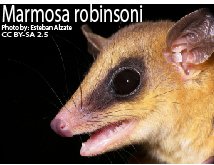MammalMondayのTwitterイラスト検索結果。 40 件
Last dissertation chapter on the life history of multituberculate mammals published @ASNAmNat! Here's artwork by @AndreyAtuchin of a Mesodma mother with her relatively precocial offspring 🧵 #MammalMonday #MesozoicMammalMonday
https://t.co/9pQDuMWWHA
Scelidotherium leptocephalum is the name for a species of extinct ground sloth, first described based on a partial skeleton discovered by Charles Darwin in 1833. #MammalMonday #Museum30 @NHMFossilMammal #CharlesDarwin
Started working on a little Phosphatherium today. Might develop the sketch later this week after I wrap up a few projects.
#proboscidea #WIP #sketch #paleoart #MammalMonday
One of the new species, Pontolis barroni, is named after our colleague John Barron from the @USGS in honor of his contributions to biostratigraphy of #California and the North Pacific! For this species we have males, females & juveniles!
#MarineMammalMonday 3/n
The Zerda, a small nocturnal fox, from Ebenezer Sibly, An universal system of natural history including the natural history of man, etc. 1509/871 #mammalmonday https://t.co/sxBBk2Mp6e
#MammalMonday The spectral bat (Vampyrum spectrum) is the largest chiropter in the New World. This drawing is from the Royal Botanical Expedition to New Spain (1787-1803), one of the most ambitious scientific expeditions in #18thCentury. #Archives #SciArt #Mammals #Bats #NatHist
Ecstatic to be illustrating this amazing book series! The first four books out MAY 2021! Here is the preliminary Lisowicia for the, you guessed it, Lisowicia book (book 4). Lisowicia is a Late Triassic dicynodont (a distant relative of ours) #paleoart #sciart #mammalmonday https://t.co/4W3dWC5dO2
Just a red panda I drew for a friend a few years ago.
#mammal #mammalmonday
Here is the revised version with the correct text. I wish Twitter would let me edit my tweets. I am just the worst at proofreading! #mammalmonday #paleoart #sciart @
Today I decided to keep working on my plate of recently extinct felids of the Americas. Added sketches of two more taxa: Homotherium serum (the Scimitar-toothed Cat, a machairodontine) and Panthera atrox (the American Lion, a pantherine) #paleoart #sciart #MammalMonday
There are over 110 species of #marsupials in the Americas (primarily South America) yet most people don’t know about them. Here is a small sample of them. These sketches are of the tribe Didelphini of Didelphid marsupials, some of the most common #opossums #sciart #MammalMonday
I finally have a bit of time to sketch in the morning. The recent study on Thylacosmilus published last Friday made me want to sketch some portraits of this amazing Late Miocene-Pliocene South American sparassodont #Paleoart #sciart #MammalMonday
Morning sketch. Portrait of Tetraceratops insignis, a small basal sphenacodontian synapsid (probably close to therapsids) from Early Permian North America. A distant relative to all of us mammals. #paleoart #sciart #MammalMonday
I have been wanting to reconstruct Entelodonts for a while, so for today’s #MammalMonday I decided to sketch this Daeodon, a huge entelodon with a 90 cm skull that lived in the Oligocene and Miocene of North America. I really enjoyed this one #paleoart #sciart
It's #MammalMonday! Most people associate #marsupials with #Australia, but Marmosa robinsoni (Robinson's mouse opossum) is from Central & #SouthAmerica. Unlike most other marsupials mouse opossum's lack a pouch for #reproduction. @UMichEEB #mammalogy #zoology #oVertTCN #3Ddata
It appears there is something called #MammalMonday So here’s a red squirrel with a hazelnut. Did you know that a squirrels drey has two rooms & one is used as a nursery? #1000Postcards #Squirrels #RedSquirrel
Boas and Paulli’s “The Elephant’s Head" is a beautifully illustrated work dedicated to the craniofacial anatomy of the elephant, presented alongside several other mammals for comparison. Explore v.1 (1908) in #BHLib via @SILibraries ➡️ https://t.co/wDTehhQ51y #MammalMonday 🐘
For your Monday morning viewing pleasure, we give you the brain of a kangaroo (from George Robert Waterhouse's 1846 "A Natural History of the Mammalia", new to #BHLib this week via @museumsvictoria @atlaslivingaust): https://t.co/XpaCzunxqp @biodivlibrary #MammalMonday
Canids of South America, including species extinct in the last 12,000 years. Canids are surprisingly diverse in South America. Some hypercarnivore taxa went extinct 12-10,000 years ago (along with most of the megafauna). Did this in sketch style #paleoart #sciart #MammalMonday











































